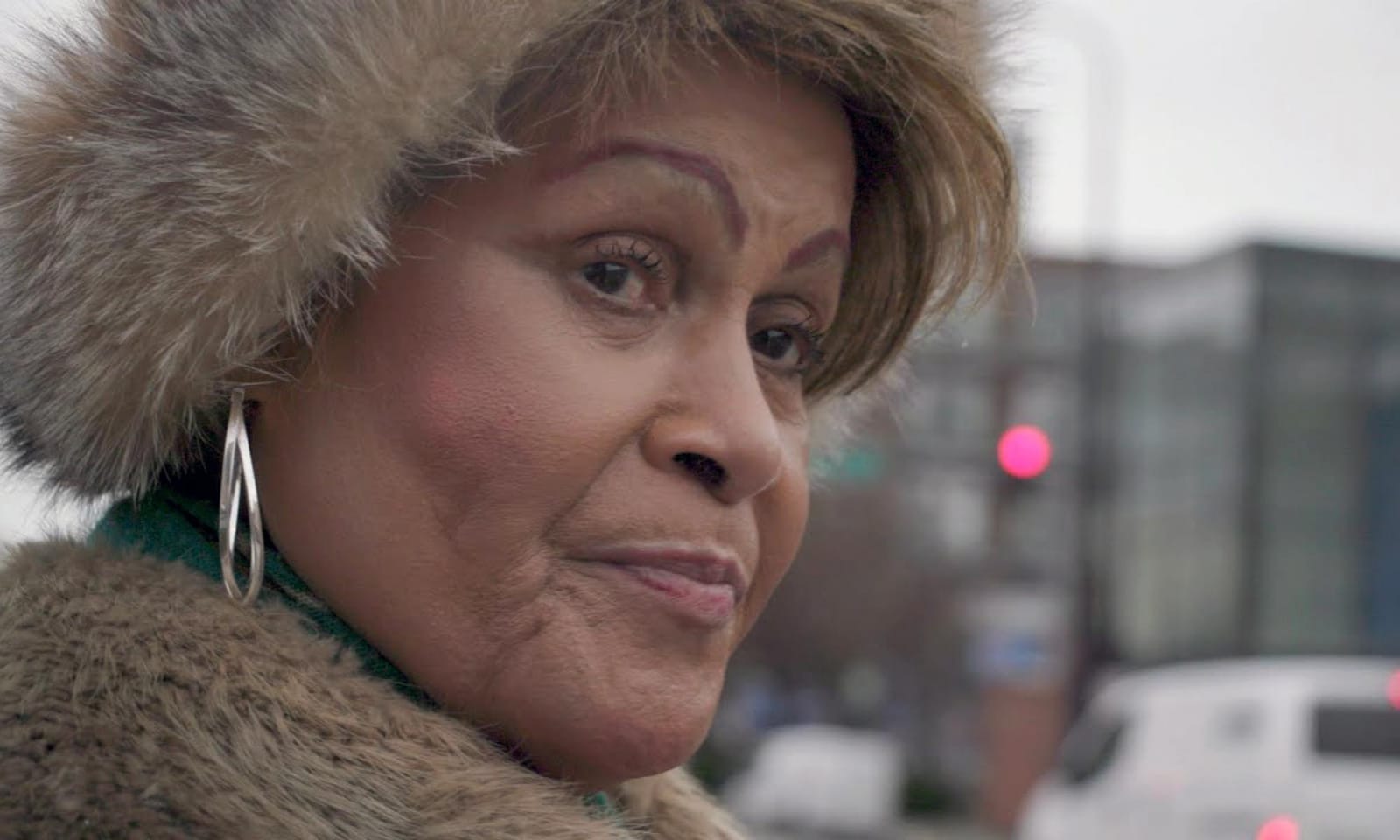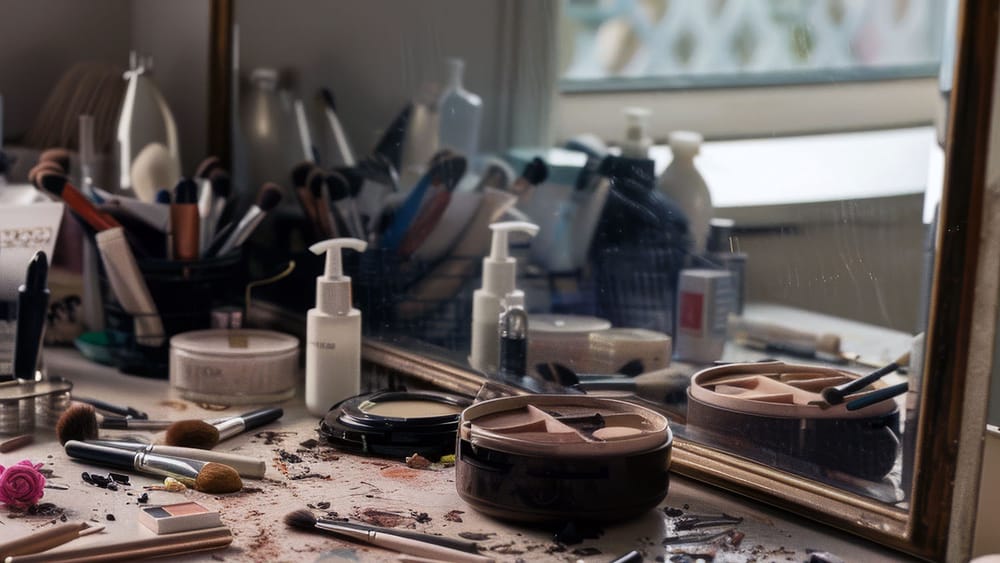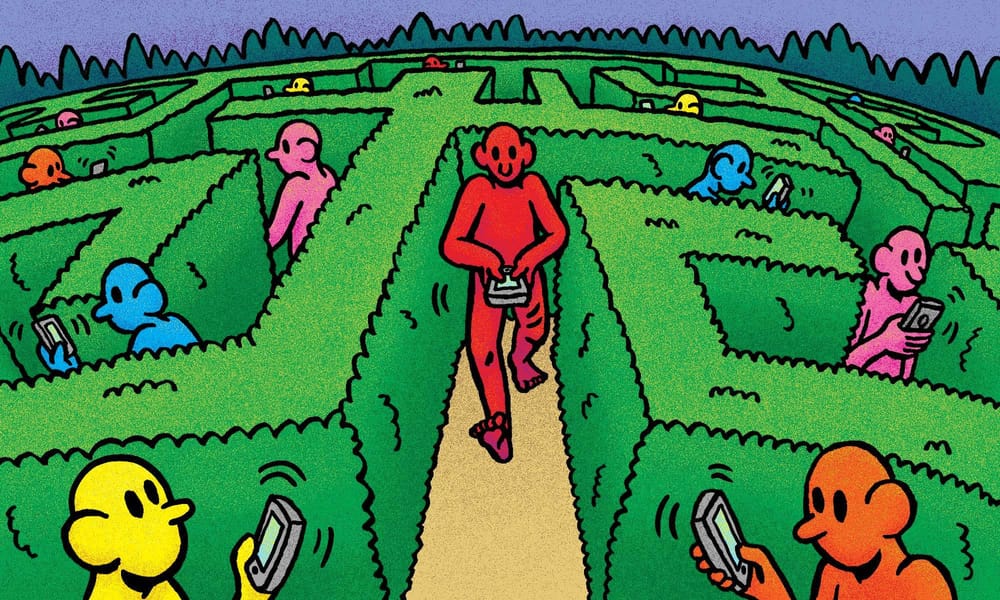In the face of the many seemingly unsolvable problems of the world, it takes courage, faith and determination to take on the role of a superhero. Colours of a Changemaker is a series of interviews with Black, Indigenous and People of Colour from around the world who are using their vocation to create social and environmental change. As Gandhi once said, we must be the change we want to see in the world, and these changemakers are doing just that through their art, music, written works, social platforms and much more.
Luchina Fisher is a director, writer and producer dedicated to changing the world through filmmaking. Her directorial debut Mama Gloria tells the story of Chicago's Black transgender icon Gloria Allen and is a celebration of transgender identity and resilience. Since its release in October 2020, the film has garnered much positive attention, picking up dozens of awards and accolades, including Best Documentary at New Jersey's Teaneck International Film Festival. It was also recently nominated for the prestigious GLAAD Media Award for “Outstanding TV Journalism—Long Form.”
We spoke with Fisher about her journey making the film, the challenges our elderly transgender population face and her hope for the future.
When did your interest in filmmaking begin? Can you tell us a little about that journey?
I’ve been telling stories since I was a little girl, starting at home and among my siblings. I grew up in the heyday of television and would watch programs morning to night, unless I was at the movie theatre or drive-in. After watching something, my siblings and I would re-enact scenes with each other, usually with my brother as the “director.” Because I never saw a director who looked like me, I chose to study journalism in college. I started my career as a journalist, but filmmaking was still a burning passion. In the early 90s, I had the opportunity to study film and television in England on a rotary scholarship and I made my first film, a 60-second advert that won second prize in Kodak’s student film competition in the UK. I came back to the US and returned to journalism but made films on the side until 2018, when I started directing my first feature, Mama Gloria.
How did you come to tell this story?
A dear friend from college actually reached out to me and said he had found my next writing project. He sent me an article about Gloria Allen. She was looking for someone to help her with her memoir. But I knew intuitively that Gloria’s story would be more impactful on the screen, where people could see and hear her. As it turned out, I was on my way to Chicago with my daughter, so we spent the day with Gloria, and it was then that Gloria decided she trusted me to help her tell her story.
Why was this an important story to tell?
When people dismiss this current wave of trans visibility as being a trend or recent phenomenon, Gloria’s story proves otherwise. Not only did Gloria transition before Stonewall and the modern gay rights movement, but she did so with the love and support of her mother and grandmother. For me as the mother of a daughter who identifies as transgender, showing this narrative was especially important. It counters the prevailing narrative, especially of Black trans women, that their families don’t love and support them or that they can’t live to an old age, like Gloria.
The historical part of the story I found very interesting. I had never seen the historical perspective of the transgender experience in the US before. A viewer can definitely see how far we have come with trans issues; however, at the same time, it's also apparent that some of the issues Gloria Allen faced back then still exist today. That felt a little bitter-sweet to me. How did you feel as you went on this journey of uncovering? What is the biggest change you've seen when you compare the past to now?
What I loved about Gloria’s story is that she came up within a strong community of Black queer and trans people before the word ‘trans’ existed. There was actually a thriving queer nightlife and drag ball scene on Chicago’s south side that dates back to the 1920s. Thousands of people from all over the city—White, Black, gay and straight—would come to the south side every year for the Finnie’s balls, where Gloria formed deep and lasting friendships. At the same time, the threat of violence was prevalent, and Black trans women were being assaulted or worse without much repercussion. Today, we know that violence continues, but there is more awareness of it and growing efforts within cities across America to combat the violence. At the same time, we saw a record number of anti-trans bills introduced in state legislatures across the country last year. This is, in part, a backlash to the unprecedented visibility of trans and non-binary people. But I believe love will ultimately triumph. Gloria marvels that she could never have imagined seeing trans people on television (in Pose) or young people like Gia [my daughter] appearing in national brand campaigns. Progress is happening.
How was the whole filmmaking experience for Gloria? The journey and then seeing the finished film. Has she spoken to you about it?
Because of COVID, Gloria and I only got to watch the film together live and in person about a year after its premiere at the Chicago International Film Festival. As we sat watching the end, we grabbed each other’s hand and cried. She tells me all the time how much the film means to her and how people have responded to her after watching it. But to actually be in her presence and feel that I had done my job well in capturing her life and spirit is the biggest reward for me. It means everything. Gloria trusted me from the very beginning and never held back anything, and I took that responsibility seriously.
What are some of the biggest issues that senior transgender citizens face today?
Trans seniors make up about 14 percent of the transgender population in the US. Many of them face higher rates of violence, homelessness, income instability and discrimination. Too often, trans and other LGBTQ seniors will move into a senior residence and are forced to return to the closet in the face of discrimination. And because many of them are estranged from their families and/or never had families of their own, they also face greater isolation and loneliness.
How can we improve the lives of our ageing transgender population?
The LGBTQ-friendly town hall apartments, where Gloria lives, is a great model for improving the lives of trans and LGBTQ seniors. Only the second in the nation, it provides not just affordable housing but a community that is safe and affirming for LGBTQ seniors. There are social workers to assist the residents and programming and common spaces to keep them engaged. It’s next door to a grocery store and the Center on Halsted, Chicago’s LGBTQ community centre where Gloria once taught her charm school. We need more such housing for our growing aging LGBTQ population. The organisation Sage estimates that by 2030 there will be 7 million LGBTQ adults, age 65 or older, in the US.
Your daughter Gia is also transgender. How did she respond to the film?
Gia found Gloria’s story personally inspiring. The film is dedicated in part to Gia, because I wanted her to see what’s possible when you have support in your life. Too many headlines about the transgender community focus on the discrimination and violence that Black trans women in particular face. Mama Gloria is the uplifting story I wanted Gia to see—to know that she could live a long, meaningful life like Gloria. One of my proudest moments around the release of the film was the screening for the human rights campaign, the largest LGBTQ-advocacy organization in the world. Gia hosted a talkback with me, Gloria and Tori Cooper from HRC’s transgender justice initiative. It was a powerful evening!
What has the overall response to the film been so far? Have you seen any recurring responses that have stood out?
The response has been incredible. We’ve received numerous awards from festivals, including best film and best documentary. We’ve gotten incredible reviews and press, from People magazine to Essence to the BBC and The 19th news. The film had an incredible international premiere at BFI Flare in the UK, and we got so much love from people there. Most viewers respond to Gloria’s optimism and joy in the face of continued attacks on the trans community. They are especially moved by seeing her life as an elder and her relationship to her family, church and fellow residents at her senior building.
What did you find to be the most challenging part of the filmmaking process?
Every independent filmmaker will tell you that raising money for their film is the most challenging part of the process. I’m no exception. But probably just as challenging were the moments I felt alone and isolated in the process of trying to complete this huge project. Any time that happened, I did the opposite, which is reach out to other filmmakers, to Gloria, to the community. And every time I did, it advanced the film in some way, until we had not only secured funding but built a team and an audience around the project.
What is the change that you hope to see from this film? What do you hope people will take away from it?
My wish for the film is simply to humanise the trans experience and show that trans people are members of our families, our workplace, our communities. They have hopes and dreams just like we do. They love and are loved. For the 80 percent or so of Americans who say they don’t know a trans person, I want them to know Gloria Allen. Her story has the power to change hearts and minds and save lives.
I'd love to quickly sidetrack a little and learn more about your experience as a Black filmmaker. You started writing and directing a decade ago, in 2011. How has the filmmaking landscape changed since you first began? Has it become more inclusive? Have you seen a positive change when it comes to representation and support?
When I started with my short film in 2011, I basically decided to give myself the green light, instead of waiting for Hollywood to call. I raised the money through crowdfunding and directed a scripted short that I wrote with the help of a great team of people. I directed another short, then went on to co-executive produce and co-write a documentary feature (Birthright: A War Story) with my dear friend Civia Tamarkin. [It was] an important and critically acclaimed film that convinced me I was ready for my directorial feature debut. Of course, while I was making Mama Gloria, we went through a much-needed reckoning on race that touched nearly every aspect of our culture, including the film industry. At the same time, I had joined a powerful group of BIPOC female documentary filmmakers called Brown Girl Doc Mafia. Suddenly, I was getting calls and emails from production companies interested in working with me. I have been out here for a long time working away and finally the industry has caught up to me. I’ve been working non-stop since!
If there was one piece of advice that you could give to other underrepresented filmmakers trying to make it in the industry, what would it be?
Find community. Filmmaking is not an individual endeavour. It requires you to work with other people. Now there are so many groups for filmmakers of colour—groups that didn’t exist when I came out of film school. And there are so many of us out here working. You don’t have to look far anymore for examples of Black female directors. We’re out here, and we’re changing the world through our storytelling.
Editor’s Note: Gloria Allen, affectionately known as "Mama Gloria," passed away peacefully in her sleep on June 13, 2022, at the age of 76. Her life and work, including the charm school she founded for transgender youth, are celebrated in the documentary Mama Gloria.
You can follow Luchina Fisher on Instagram here, on Twitter here, and learn more about Mama Gloria here.







